Digestion and the gastrointestinal tract

Fiber: Insoluble food component, prevention and cure? + Daily intake
Fibre is one of the important food components that has started to disappear from our diets over the years. Originally, humans used to consume much more of it, but it is gradually making a comeback in our diets due to its beneficial effects.

Colon cancer: causes, stages, manifestations? Diet and nutrition?
Colorectal cancer is a very serious disease with a lengthy and often unsuccessful treatment. In more than half of the cases, it is fatal. Living with it is not a walk in the park either. It causes limitations for the patient. One of them is diet. Diet in colon cancer has its reasons.

Green tea: what does it contain and what are its health benefits? Does it help with weight loss?
Green tea is one of the most popular teas and hot drinks worldwide. Its existence has been mentioned for thousands of years. It originates from China and is known for its many health benefits. What does green tea contain and how does it affect human health?

Metabolism: what is it, what are its functions and how to support it?
What is metabolism and what role does it play in our lives?

Weight loss and intermittent fasting: what is it?
Intermittent fasting, otherwise known as intermittent fasting, is a relatively popular way of eating and losing weight. What is the main principle of intermittent fasting? What are its benefits and who should avoid it?

Pain and cramps in the abdomen after eating? Possible causes and treatment
Abdominal pain is one of the most common pains we encounter in life. Unpleasant sensations and cramps in the lower abdomen can point to a dietary error, improper eating habits, but also to certain diseases. What are the possible causes of pain?

Irritable bowel syndrome: what is it and what are the symptoms, causes of IBS?
Irritable bowel syndrome is a functional, not an organic, disease of the digestive tract. It is caused by a combination of various risk factors, such as stress. It is characterised by abdominal pain, bloating and difficult defecation. Treatment may or may not be simple.

What are lactobacilli and what effect do they have on digestion?
Why is Lactobacillus beneficial for the body? In which foods can it be found naturally? Can lactobacilli affect the course and symptoms of various diseases?
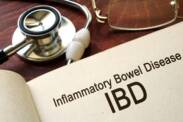
Non-specific inflammatory bowel disease, IBD: What are the types and symptoms?
Nonspecific intestinal inflammation affects mostly young people between the ages of 20 and 35. The incidence of this disease is steadily increasing. The main representatives of IBD are Crohn's disease and ulcerative colitis. Why does inflammation arise and how does it manifest itself?
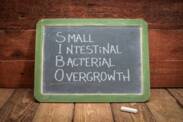
SIBO: What is Bacterial Intestinal Overgrowth Syndrome? Symptoms...
Small intestinal bacterial overgrowth (abbreviated SIBO) is a syndrome characterized by an increased or abnormal type of bacteria in the small intestine. It mainly causes problems with digestion and absorption. What causes SIBO and how does the disease manifest itself?

The digestive tract and digestion: how to support it? Function + digestive enzymes
Do you know how the digestive tract works and the important digestive enzymes? How to improve your digestion? Read advice and tips...

What is fibre: what effect does it have on weight loss + where is it found
Fiber is essential for the proper functioning of our body. Does it really have an effect on weight loss?

What is a box diet: the principle, advantages and disadvantages?
In the context of lifestyle, we often look for different ways to eat healthier and more nutritiously. One option is a boxed diet tailored to the individual's goal. What are the advantages and disadvantages?
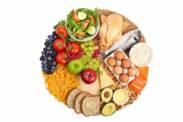
The split diet: principle and food combinations. Does it really work?
In the context of lifestyle and weight loss, we often try different diets and ways of eating. One of the dietary options is a split diet based on a combination of foods. What is the split diet based on? Which food combinations are appropriate and which are inappropriate?
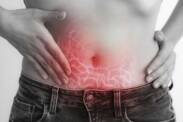
What functions does the small intestine perform? The most common diseases and symptoms
The small intestine is an important part of the digestive system. It is particularly important for the absorption of essential nutrients into the body. What are all its functions? What are the risk and beneficial factors that affect gut health?

Vomiting and nausea after eating: possible causes and treatment
Vomiting is a defensive reflex of the body to get rid of the contents of the digestive tract. The cause may be a dietary error, a psychological factor or a clinical symptom of a particular disease. What are all the possible causes of nausea and vomiting after eating?
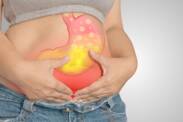
Hydrochloric acid in the stomach: function, low and high levels? How to keep it in the norm?
The contents of the stomach are made up of gastric juice, including stomach acid. Its function is important for the physiological digestion of food. However, a change in acidity levels can cause digestive problems. What are the symptoms of an altered stomach acid norm?

How (not) to eat in acute diarrhoea + Appropriate diet + Causes
Almost every person occasionally has digestive problems that force him to spend some time in the toilet. Acute diarrhea, pain or discomfort in the digestive tract. What are the possible causes of diarrhea?

Oral cancer: what are its causes and manifestations (of the lips and tongue)
Oral cancer is a serious cancer. It has a high mortality rate due to late diagnosis at an advanced stage. What are its first manifestations, prevention and treatment options?
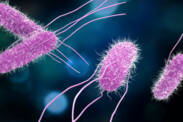
What is salmonellosis?3x how: how does it arise, how does it manifest itself, how to get rid of it?
Salmonellosis is a very common diarrhoeal disease caused by intestinal pathogens - more specifically Salmonella bacteria. It is one of the most common and well-known infectious diseases of the digestive tract.









